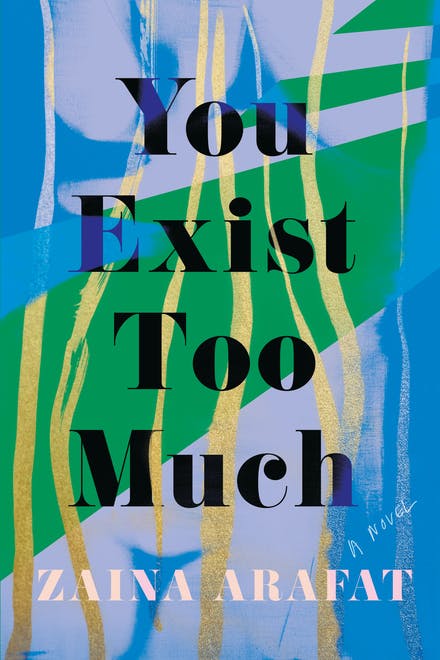YOU EXIST TOO MUCH
Zaina Arafat
Hachette
REVIEWED BY PETER STUPPLES
The narrator of Zaina Arafat’s novel relates the story of her ‘coming of age’ from the vantage of the present, when she is a middle-aged woman at last leading a settled life with her partner, Anouk, in New York. She was born in Neblus, Palestine to a beautiful, well-educated mother from a distinguished family and cardiac-surgeon father.
Due to the constant violence between the government of Israel and the Palestinians, her parents emigrated to Washington DC in the United States when the narrator - never named - is 4. Her parents, like her grandparents, were always quarrelling and separated when she was a young teenager.

As a teenager, the narrator, early and vigorously, participates in sexual activity with both boys/men, but especially girls/women. She knows no boundaries. When she tells her mother that she prefers women to men her mother throws her out of the house, as she will bring shame to her Arabic family. This only accelerates the narrator’s promiscuity, her drinking and clubbing playing havoc with her college education and graduate school programme.
The novel, which has no plot other than the combative, and often infuriating, narrator’s long struggle to find peace within herself, to find an equilibrium in her otherwise chaotic social life, describes the lives of a wide range of people she meets along the way.
They are all struggling to find meaning for themselves in our world, where cultural values have been discarded and nothing of substance has taken their place.
The core of the book relates her experience of a 28-day programme in a group therapy centre where her acute intelligence finds many of the activities wanting, despite the good intentions of a caring staff. When she leaves, she soon reverts to her previous self-destructive behaviour, though she has been strengthened to cope, and an increasing maturity enables her to look for more stable solutions.
Arafat has written a thought-provoking study of cultural dislocation and the problems western freedoms bring in their wake when traditional values are abandoned. Rather unfortunately, it seems, freedom without responsibility comes at a high price.
Peter Stupples, now living in Wellington, used to teach at the University of Otago












